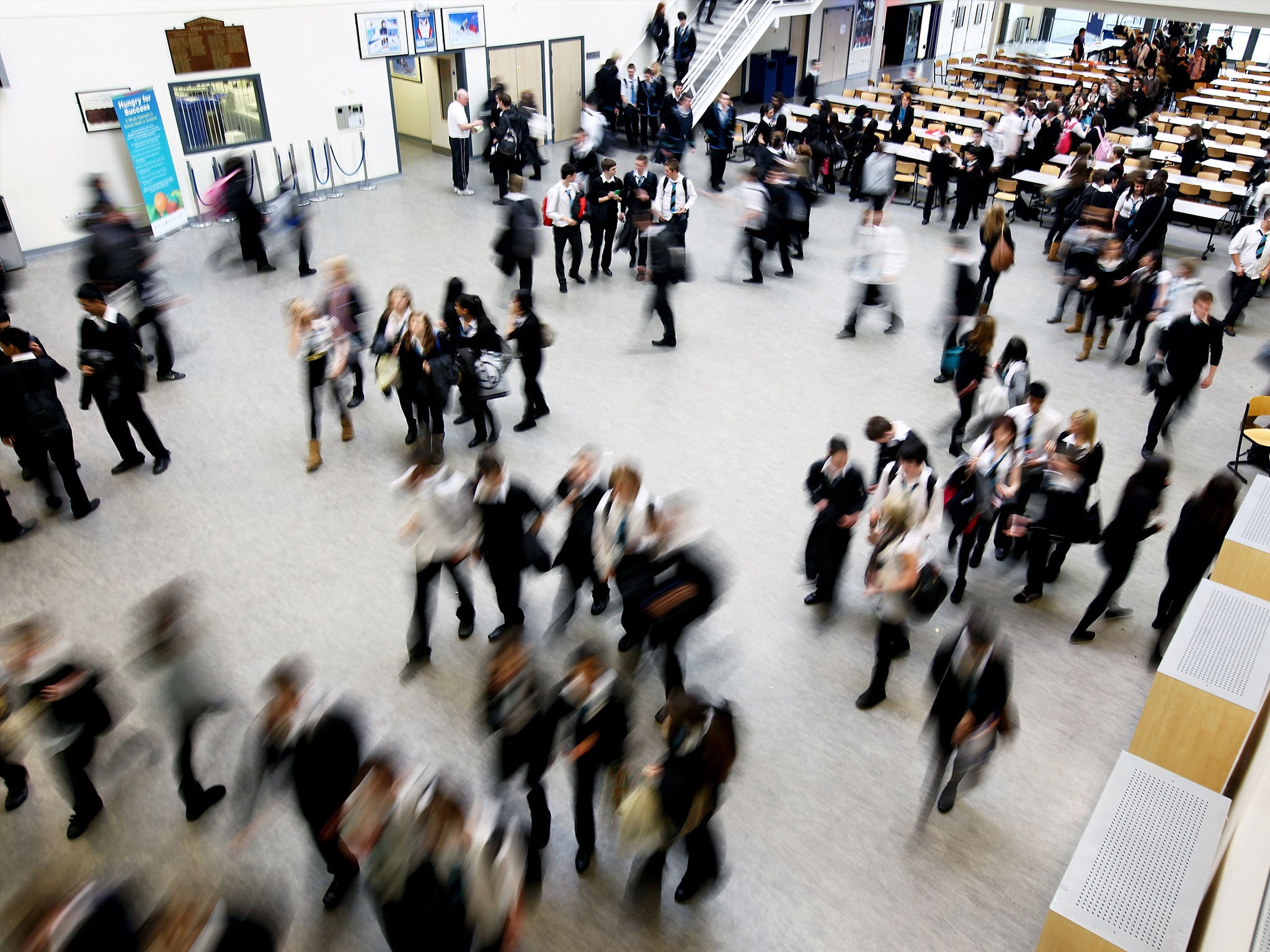Schools in deprived areas become ‘dumping grounds’ for struggling children, Ofsted report suggests
Hundreds of thousands sent to schools that have been underperforming for more than a decade

Schools in deprived areas are becoming “dumping grounds” for struggling children – with headteachers sending pupils who behave badly to poorly performing institutions, Ofsted research finds.
Some 210,000 children are being educated in schools which have been underperforming for more than a decade despite government efforts to improve them, the watchdog has said.
And school leaders say pupils with serious behaviour issues and complex safeguarding needs are being moved into these schools in the middle of the year because there are spaces available.
Two whole cohorts of pupils have spent their entire education in some of the worst learning environments because hundreds of state schools have repeatedly “failed” them, the report suggests.
An Ofsted analysis found 415 schools in England remain “stuck” in a cycle of low performance – meaning they have been judged below the level of “good” in every inspection for at least 13 years.
Low oor parental motivation, geographic isolation and unstable pupil populations are among the challenges cited by these poorly performing schools, Ofsted has said.
A number of these stuck schools described themselves as a “dumping ground” – and one senior leader told Ofsted the school was “toilet of schools”.
Ofsted, while distancing itself from the term, agreed that a cycle of poor performance had led to pupils leaving, creating spare capacity for struggling children to be admitted from other schools.
In one case, this amounted to 100 children in just one year – 10 per cent of the institution’s pupil intake.
Many of these schools also reported low levels of literacy and employment among parents.
The report found some children are “sent to school hungry”, while others try to get excluded so they can return home “because they are concerned that their parents are victims of domestic abuse”.
Ofsted declined to publish a list of stuck schools but said Derby, Southend-on-Sea and Darlington were the three local authorities with the highest proportion of stuck schools.
Amanda Spielman, chief inspector of Ofsted, said: “Stuck schools are facing a range of societal problems such as cultural isolation, a jobs market skewed towards big cities and low expectations from parents.
“However, we have shown that schools in these places can still be good or better by holding teachers to high standards, tackling bad behaviour and getting the right leadership in place.
“Our inspectors have found that the majority of schools in challenging areas are providing children with a good education that sets them up to succeed in later life.”
The watchdog is calling for the government to fund a trial of a deeper inspection approach with some of these schools. Ms Spieman added: “What the remaining stuck schools need is tailored, specific and pragmatic advice that suits their circumstances – not a carousel of consultants.”
But Dr Mary Bousted, joint general secretary of the National Education Union, criticised Ofsted of failing “to recognise its own role in creating the problem.”
She said: “Schools in deprived circumstances are much more likely to find it hard to get out of the Ofsted category than schools in leafy suburbs.
“Fear of Ofsted is a key factor in school leader and teacher flight from these schools.
“Far from being a force for educational improvement in the areas that need it most, Ofsted is unfortunately part of the problem, not the solution.”
Stephen Rollett, curriculum and inspection specialist at the Association of School and College Leaders (ASCL), said: “Ofsted highlights that one problem in stuck schools is the lack of stable leadership because of a churn of headteachers.
“But this problem is the result of an accountability system of inspections and performance tables which is extremely harsh and makes leadership perilous.”
A Department for Education spokesperson said: “There is more to do and we will continue our relentless focus on standards by backing teachers and intervening where there is entrenched under-performance.
“Ofsted plays an invaluable role in improving standards and we are working with them to look at how best to support these schools.
“We have also created a specialist academy trust to work with these schools and make improvements, as well as six new training hubs to ensure the best leaders can provide support.”
Subscribe to Independent Premium to bookmark this article
Want to bookmark your favourite articles and stories to read or reference later? Start your Independent Premium subscription today.

Join our commenting forum
Join thought-provoking conversations, follow other Independent readers and see their replies